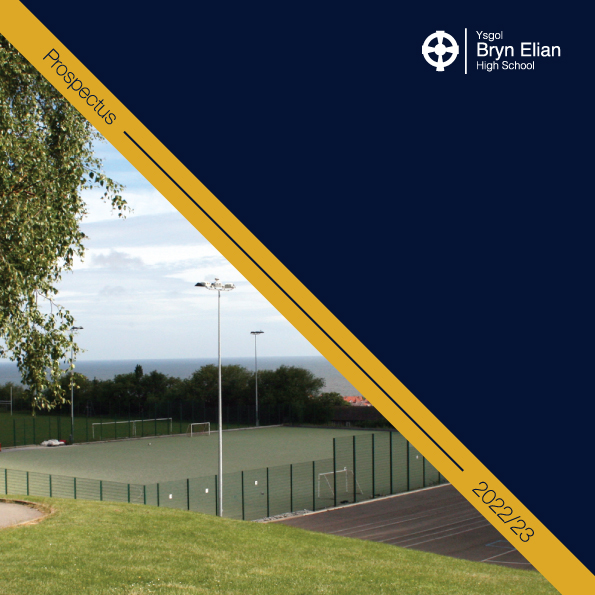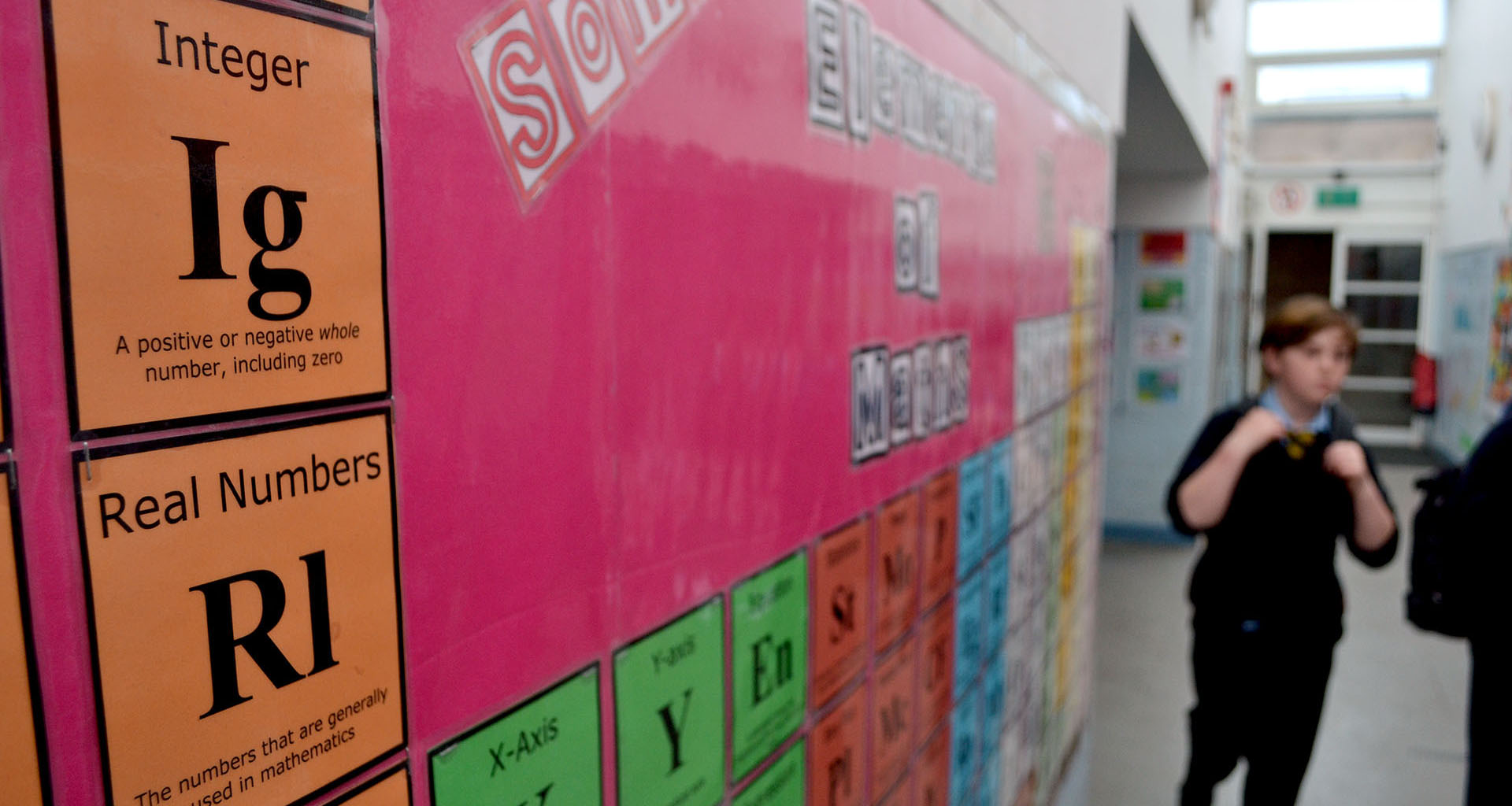Introduction to Department
Mathematics embodies the spirit of the liberal arts: mathematics is an art, a pure science, a language and an analytical tool for the natural and social sciences, a means of exploring philosophical questions, and a beautiful edifice that is a tribute to human creativity.
Our Mathematics team at Ysgol Bryn Elian have high expectations for all of our pupils and believe that everybody should have an enjoyment in doing such a fantastic subject. Mathematics is often painted in a bad light by some but the world would not run without it and we want to ensure that when pupils leave our school, they have had a positive experience and are, at the very least, mathematically secure.
Staffing & Responsibilities
Staff MemberDepartmental ResponsibilityAdditional ResponsibilityMr R RenderHead of DepartmentAssistant Head teacherMr G ReesSecond in Charge
Teacher of MathematicsDigital Framework Co-ordinatorMiss E BishopTeacher of MathematicsSchool Research ChampionMr P BrierleyTeacher of MathematicsMr J ChaplinTeacher of MathematicsMrs H HayesTeacher of MathematicsMs S KrolTeacher of MathematicsMr C StewartTeacher of MathematicsAssistant Head teacher
Head of Year 11Mr S WhitfieldTeacher of MathematicsAbout KS3
Classes in Key Stage 3 begin studying GCSE topics from the start of year 7 at a level suitable to them. This practice has been recognised by Estyn and shared as ‘Effective Practice’ on their website. The scheme of work is designed to give pupils the time to gain a deep understanding of each topic and therefore build confidence in such a wonderfully powerful subject area that is used across the curriculum. Modules are put together is small manageable chunks and are assessed regularly so that misconceptions and areas for development are addressed regularly.
Classes are set on ability to ensure that a suitable level of challenge takes place in each lesson. Pupils are encouraged to have their own mathematical equipment including a scientific calculator so that they can become proficient in using it during their time in school.
About KS4
Classes in Key Stage 4 continue their mathematics journey as they begin to prepare for their GCSE examinations in Mathematics and Mathematics Numeracy. Lessons continue to focus on gaining a deep understanding of each topic but have an additional focus on exam style questions. Action research is undertaken by staff to ensure that we are at the forefront of teaching and pedagogy.
Pupils will be entered for their GCSE examinations when we believe that they are able to fulfil their potential and achieve the best grades possible. For those pupils that achieve an A or A* before the summer of year 11, we offer the Additional Mathematics Qualification that is a great step up to AS and A level Mathematics.
About KS5
In the sixth form we offer AS and A levels in Mathematics and Further Mathematics. Our latest results show that the teaching at Ysgol Bryn Elian is outstanding in both Mathematics and Further Mathematics, meaning that a large proportion of our students beat their expected grades.
Both Mathematics and Further Mathematics from WJEC consist of modules in Pure, Statistics and Mechanics and are 100% examination based.
Useful Websites
Each pupil has a personal login to the following websites:
We also recommend:
Courses
- English
- Mathematics
- Science
- Welsh
- Modern Languages
- Geography
- History
- Religious Studies
- Design &Technology
- Physical Education
- Art
- Information Technology
- Media Studies
- Performing Arts
Maths study guides & resources
- GCSE Markschemes
- Maths Homework Resources
- Revision Timetable 2017
- Numeracy Handbook
- Numeracy Sample Material
- Foundation 6 week revision schedule
- Higher 6 week revision schedule
- Junior Challenge Year 7 and 8
- Intermediate Challenge Year 9, 10 and 11
- Senior Challenge Year 12 and 13
- Team Challenge

A little bit about Careers involving this subject
Learning to think like a mathematician will improve your problem-solving and decision-making skills.
The skills you learn in mathematics are also important in many other subjects. Some you may have studied before, such as biology, and others you may not, like sports science. Many of them require a C+ at GCSE and will be much easier to study if you have a good grasp of the subject. Maths is good for combining with other subjects and goes particularly well with the physical and social sciences. A maths qualification is highly regarded for entry onto many further education courses.
It’s not just at university that the ability to apply a process, manipulate equations and deal with basic geometry come in useful. Many people find that the topics they were taught at GCSE come up again and again, whatever their profession. Many employers rate the ability to handle data very highly – ie the ability to get information from graphs and charts, to manipulate percentages and fractions, and to make sensible predictions from data.
The most fundamental reason to study maths is that it teaches you to learn – to build up an understanding from basic principles, to develop general concepts, and then to apply this to specific examples. You learn to think logically, to ask questions and check out your conclusions all of which are really useful life skills.

Maths

